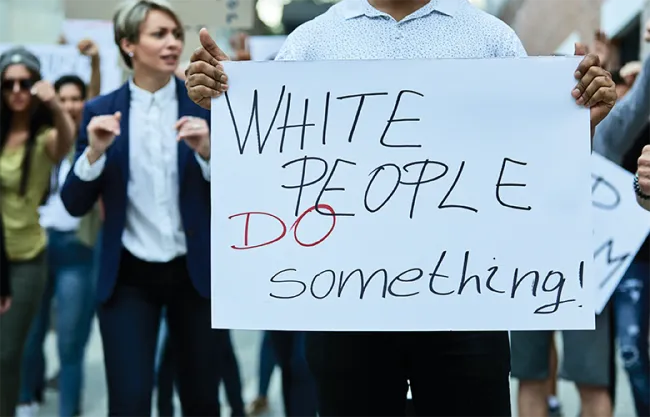Can You Be Racist to a White Person? Unpacking a Polarizing Debate
The question, "Can racism be directed at white people?" has become a central point of debate, often sparked by cultural moments like the Sarah Jeong controversy or critiques of affirmative action. To address this, we need to first examine the definition of racism, understand the role of systemic power, and confront uncomfortable truths about both historical and current inequalities.
1. Racism vs. Prejudice: Understanding the Definitions
At the heart of this debate is how we define racism. Many scholars and activists argue that racism is not just individual prejudice but also involves power. Under this definition, racism is a systemic force used by dominant groups to maintain social hierarchies. Consider the following:
- Historical context: Centuries of colonialism, slavery, and segregation entrenched white supremacy, creating lasting disparities in wealth, education, and criminal justice.
- Modern disparities: Black Americans are disproportionately likely to be killed by police compared to white Americans, and the median wealth of white households is significantly higher than that of Black households.
From this perspective, while white people can experience prejudice (such as negative stereotypes or personal discrimination), they do not face systemic racism because they hold institutional power. Critics of the term "reverse racism" argue that it misrepresents racism by ignoring these structural power imbalances.
2. The “Reverse Racism” Narrative: A Closer Look
Claims of anti-white discrimination often arise in discussions about policies like affirmative action or diversity initiatives. For example:
- Affirmative action: Opponents argue that prioritizing marginalized groups harms white applicants. However, studies show that white women are the primary beneficiaries of such policies, and only a small percentage of discrimination cases involve "reverse discrimination."
- Cultural critiques: Works like Dear White People or blogs such as Stuff White People Like address cultural tensions but are often misinterpreted as attacks rather than critiques of privilege.
These discussions often reflect what is known as "white fragility"—a term coined by Robin DiAngelo to describe defensive reactions when white people are confronted with racial discomfort. For instance, surveys show that many white Americans believe they face significant discrimination, despite clear evidence of systemic advantages.
3. The Psychology of Racial Perceptions
Interpersonal dynamics also play a role in racial tensions. Research shows:
- Stereotype threat: White individuals may overcompensate in cross-racial interactions to avoid appearing prejudiced, while people of color often focus on proving their competence.
- Implicit bias: Even well-meaning individuals can harbor unconscious biases, which disproportionately harm marginalized groups.
These psychological processes highlight how racial tensions stem from unequal societal structures, not from equivalent experiences of discrimination.
4. The Global Perspective: Beyond the U.S.
The debate extends beyond the United States. In post-apartheid South Africa, claims of "reverse racism" emerged as Black-majority governments implemented policies to redress historical injustices. Critics argue that these claims overlook the lasting effects of institutionalized white supremacy. Similarly, far-right movements in Europe use anti-immigrant rhetoric under the guise of defending "native" identities, despite the historical fluidity of racial and cultural boundaries.
5. Why This Debate Matters
Dismissing systemic racism risks perpetuating inequality. For example:
- STEM fields: Black scholars face underrepresentation and microaggressions, with only a small percentage of biology professors being Black compared to a predominantly white faculty.
- Healthcare disparities: Racial biases in medicine lead to misdiagnoses and unequal treatment for people of color.
Acknowledging systemic racism does not invalidate individual struggles but shifts the focus toward equity. As Ibram X. Kendi argues, anti-racism requires active engagement, not just passive "color-blindness."
Conclusion: Moving Beyond Binary Thinking
The answer to "Can racism be directed at white people?" depends on how we define racism. While prejudice against white people exists, it lacks the systemic power that defines racism. True progress requires:
- Prioritizing marginalized voices in policy and discourse.
- Educating about historical and ongoing inequities.
- Rejecting "reverse racism" narratives that distract from structural change.
As Audre Lorde famously said, “There is no hierarchy of oppressions.” Dismantling racism requires recognizing where power truly lies—and who benefits from its imbalance.
